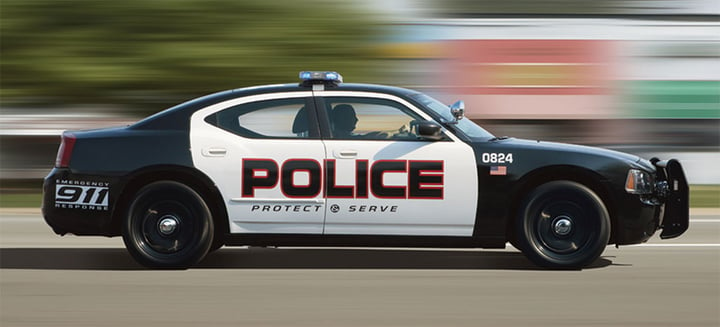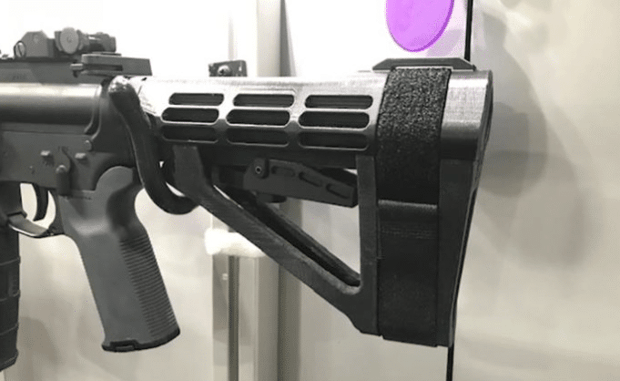We have an updated, comprehensive article on what to do when you’re pulled over while carrying a firearm. Check it out here!
DISCLAIMER: Before proceeding, please note that the information below has been gathered from numerous reputable sources with real-life experience on the topic. The information is intended for educational purposes only. This page does not offer legal advice, and the information provided should not be considered as such. As always, use your best judgement and be respectful when dealing with law enforcement.
Let’s face it, we’re all going to be pulled over at some point in our lives. Some more than others. When being an armed citizen enters the equation, certain considerations should be taken. Below is a list of 5 recommendations on how to proceed, while armed, when being pulled over during a traffic stop.
Tip #1: Know The Law
Gun laws differ from state to state, sometimes even city to city within the same state. Ignorance is not an excuse when it comes to following or breaking the law. The best thing you can do is to know your local and state laws, and the laws of any other places you are traveling to with a firearm in your car. You must be responsible for this. Knowing the laws and following them will be the best way for you to leave a traffic stop without losing your firearm or taking a ride in the back of a police car.
Tip #2: No, You Are Not Being Treated Like A Criminal
Lots of people complain and make the argument that they shouldn’t need to disclose to the officer that they have a gun in the vehicle while undergoing a routine traffic stop. Remember, the officer has a home and family they wants to get back to. They aren’t interested in harassing you. They have protocol to ask about firearms in the vehicle for their own safety. An officer asking you if there is a firearm in your vehicle is not an interrogation.
After disclosing that you do have a firearm in the vehicle, there will probably be follow up questions from the officer. Again, this is not because you are guilty of anything. Rather, they want to know what kind of situation they are in, and that everyone in the situation remains safe. Don’t take it personal or feel you are being treated like a criminal if you have to answer questions about your firearm. If you know the laws and are following them (See rule #1) you shouldn’t have any problems. A discussion, however, between you and the officer may be necessary.
Tip #3: Hands On The Steering Wheel, Internal Lights On
After you have pulled over, it is advisable to wait for the officer with your hands on the steering wheel, and internal lights in the vehicle turned on (of course roll your window down first). This allows the officer to see your hands and have a clear view inside your illuminated vehicle. Police are trained to look for suspicious movements inside a vehicle after it has been pulled over. Provide the officer with the knowledge that you are not making erratic movement and are calmly waiting to speak to them when they approach your car.
Furthermore, with your hands in clear view, when the topic of your firearm comes up there will be no confusion about your hands being on your weapon. Always keeping your hands in plain sight will make the traffic stop a much less dangerous one for both you and the officer involved. Think of these traffic stops as a team effort. Both you and the officer want to go on about your business without any issues. Help the officer complete the traffic stop and move on.
Tip #4: Advise the Officer
Some people believe in the ‘don’t ask don’t tell’ policy when it comes to disclosing you are carrying a firearm. Sometimes the officer may not ask straight away, and there are those out there that think if they don’t ask, they don’t feel a need to tell them. However, that’s likely not going to help anyone. During the traffic stop so many things could happen where your firearm is discovered or spotted by the officer. This could lead to a potentially dangerous situation.
Instead, when the officer approaches your vehicle and begins to speak with you, be up front with them and let them know there is a firearm in the vehicle or on your body. We’re not suggestions some kind of guilt ridden confession, but something as simple as “Officer, I want to let you know that I have a concealed carry permit in this state and currently have one on my person. How would you like me to proceed?”
By doing this, you are being up front with the officer and this tends to portray you in a positive light. Obviously, the reaction will vary from officer to officer, but research shows that the majority of them are very welcoming of this information. Additionally, asking the officer how he would like you to proceed offers them comfort and control over the situation.
Tip #5: Slow Movements & Proper Identification
Like most traffic stops, you will likely be asked to show identification. If you have a Concealed Carry Permit, providing that permit along with your normal identification is a good idea. In many cases this can make the ordeal move quicker. Importantly, however, is to also identify where the firearm is on your body. If you are carrying in the 5 o’clock position, that is very close to where many people carry their wallet. Let the officer know this and see if they advise you with instructions. In any case, slow movements of any kind is ideal.
Put yourself in the officer’s situation. If you knew someone had a firearm and they began making sudden and quick movements, you would probably be concerned. Slow movements provide assurance that your intentions are honest and safe.
Having your permit out, along with your driver’s license prior to the officer coming up to your window is the best way, if you have time.
Ultimately, getting pulled over for a traffic stop while carrying a firearm should not be a big deal. Remain calm, be forthcoming, be respectful, listen to the officer, and everything should be fine as long as you are following the law. The officer might even strike up a conversation about what firearm you carry or what holster you use. In most cases the officer isn’t going to want to have to make an issue over your firearm. Like you, they just want to get on with their business and go home at the end of their day.







![[VIDEO] Used Gun “Rip-Off” Rant](https://imagedelivery.net/sbm_lYeJbALkepJgtmRD5w/concealednation.org/2020/12/ScreenHunter-389.jpg/w=728,h=381)




![[CCW IN ACTION] Store Owner Makes Decision To Carry Firearm 8 Years Ago — Paid Off Big Time](https://imagedelivery.net/sbm_lYeJbALkepJgtmRD5w/concealednation.org/2015/09/lehigh-acres-robbery.jpg/w=728,h=381)

![[VIDEO] Personal Defense Tips: Defensive Shooting Standard Drill](https://imagedelivery.net/sbm_lYeJbALkepJgtmRD5w/concealednation.org/2014/08/ScreenHunter_94-Aug.-25-14.30.jpg/w=728,h=381)